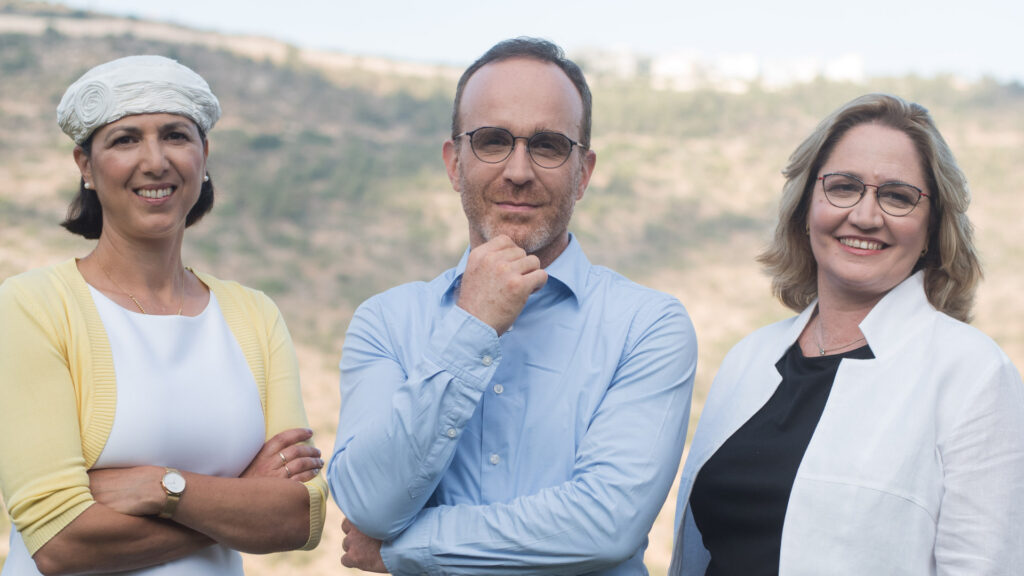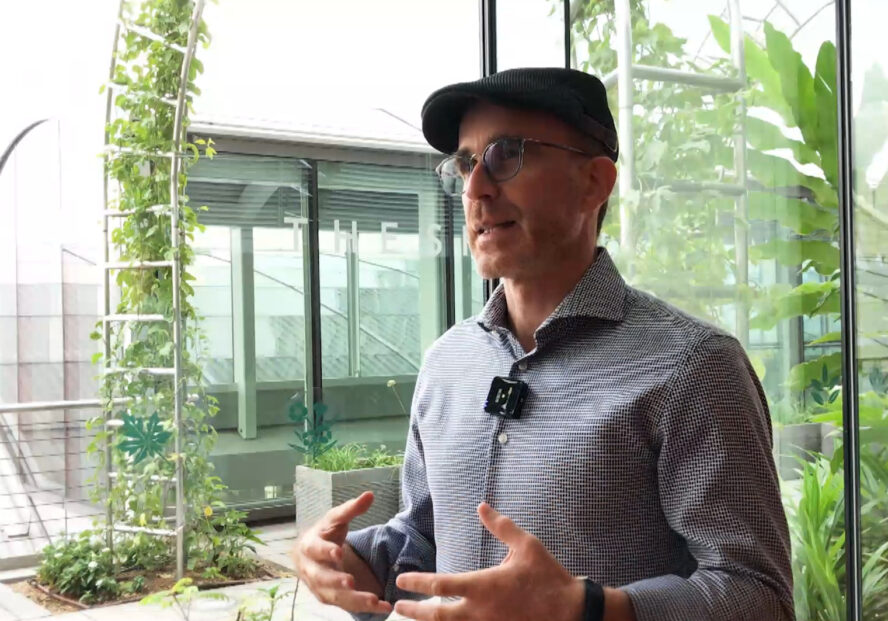One of the highest-profile players in the cultivated meat space, Israeli startup Aleph Farms plans to launch with a thin-cut beef steak at a time when most firms plan to launch with processed products such as chicken nuggets.
So is this a smart strategic move or a risky one given the added complexity of growing whole-cuts, which require cells to be transferred to a dedicated tissue bioreactor after the initial proliferation stage?
AgFunderNews caught up with cofounder and CEO Didier Toubia at the recent Asia-Pacific Agri-Food Innovation Summit in Singapore to address the following questions:
- The decision to focus on structured products such as steaks vs processed products.
- Aleph’s asset-light approach to scaling up production.
- The funding environment for cultivated meat.
- The evolution of the cultivated meat space.
- The go-to-market strategy.
The funding environment: There were very high expectations [about cultivated meat a couple of years ago] and startups were probably also part of this mismanagement of expectations. But investors also played a role… they poured a lot of money into companies and were pushing them to grow as quick and as big as possible while the technologies were not yet mature enough.
I think it’s very healthy to see a more fact-based and science-based approach today, and a more cautious approach to scaleup. But I believe we’ll continue to see investments in the space from investors who are sophisticated enough to assess the technological readiness of these companies.
Aleph Farms has raised approximately $140 million. Since 2021, the appetite of investors for risk has changed because of the increased interest rate, so it’s more difficult to raise large rounds at an early stage. And because the cost of capital is much higher, it’s more difficult to fund capex with equity or venture capital.
So that’s why we believe that the right strategy is really to disconnect product development and marketing from production and to try and externalize production as much as we can.
Public funding: What is really a significant development over the last couple of years is that we see a lot of public support towards cultivated meat in particular and alternative proteins in general.
Why start with beef steaks? We decided to focus on high-impact, high-value products. We believe that for cultivated meat to be a reasonable offering in the market, it needs first to solve real issues in terms of impact. And in terms of land, water, greenhouse gas emissions, you name it, beef is really the issue to take care of.
The selling price of beef [steaks] is also much higher than chicken nuggets or mincemeat, so we believe that as cultivated meat will be relatively expensive until we drive the cost curve down and become competitive in the mass market, we need to focus on products with the highest selling point at the beginning, which is the same strategy that Tesla implemented.
The process also needs to be optimized for scale… with equipment dedicated for cultivated meat and not necessarily transferred from the biotech industry.
Cell types: We use [bovine embryonic stem] cells which are isolated from an oocyte or fertilized egg before they start developing into an embryo. The benefit of using those cells is that they can replicate almost forever, relatively efficiently, with no need for immortalization or genetic engineering.
We have a patent covering a unique process which makes our cells grow efficiently in aggregate without any microcarriers. We do not use single cell suspension because we don’t want to immortalize or to genetically modify our cells.
Once we get to a significant mass of cells we seed them on to a plant-based matrix [scaffold] where they continue their growth and differentiation. The combination of the scaffold and the cells creates the right texture, taste, flavor and all the sensory properties of a meaty product.
The first product: For our first product, our petit steak, we are focusing primarily on connective tissue and muscle with a little bit of fat from animal origin. We also have platforms for cultivated fat and a range of other products.

So ecosystem building—which includes public private partnerships and support through policymaking, to direct incentives to de-risk the initial phases of scaling up and innovation—is what we need to drive the cultivated meat industry through its initial stages of scaleup, the same as with solar panels and electric vehicles.
It’s very difficult for one single startup on its own to drive the transition of a one and a half trillion-dollar market [the conventional meat industry].
We’re working closely with six different corporate partners: food and meat global partners, but also a range of upstream partners for the supply of ingredients, technology partners, engineering partners, and equipment manufacturers.
Go-to-market plans: We decided to launch in smaller countries first, Israel and Singapore. We’ll leverage those initial markets as hubs for us to expand into the Middle East and Southeast Asia and then target the US. We believe that to go to the US, significant investments are required.
What about Europe? Europe will probably take more time. But we filed with the FSA in the UK, and with the FSVO in Switzerland, which are not part of the European Union, meaning [the regulatory process] is a bit less rigid and less cumbersome.
Asset-light approach: We believe that in the next 5-10 years, companies will focus either on operations and production or on product development and branding. It will be difficult for companies to do both efficiently especially in the current funding environment, so at Aleph Farms we decided to focus on product development and branding and rely on external partners for production.

Further reading:
Crunch time for cultivated meat: ‘Probably 70-90% of players will fail in the next year’





